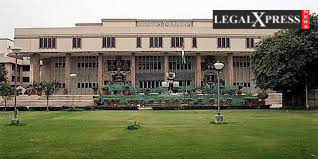 https://www.newindianexpress.com/cities/delhi/2020/feb/21/delhi-high-court-lawyers-skip-work-to-protest-judges-transfer-2106456.html
https://www.newindianexpress.com/cities/delhi/2020/feb/21/delhi-high-court-lawyers-skip-work-to-protest-judges-transfer-2106456.html
|
Justice Jasmeet Singh, a Delhi High Court judge in the case of Umesh v. State (and other connected matters held that before issuing an order for interim compensation, the Special Court need not wait for a minor victim to submit an application; instead, it must undertake autonomous action to give interim compensation to the victims at the earliest. In his own words, “According to me, the Special Court need not wait for an application to be filed by a child victim before passing an order for interim compensation and must on its own initiate action for grant of interim compensation at the earliest.”
This declaration was released after the Court noticed that it typically took two to three hearings before an effective order was rendered in a motion for interim compensation before the Special Court. This judge in order to reach this decision looked over at Rule 9 (1) and Rule 4 (14) of POCSO. Rule 9 (1) of POSCO states that in appropriate circumstances, the Special Court may, independently or in response to an application made by or on behalf of the child, issue an order for interim compensation to address the child's needs for relief or rehabilitation at any point following the registration of the First Information Report.(FIR). Any ultimate compensation, if any, will be deducted from the interim compensation paid to the kid. The Judge in response to this rule said that the special courts must grant interim relief to the minor, and this interim relief must not be subjected to submitting an application. Rule 4 of POSCO prescribes the procedure regarding the care and protection of a child. Rule 4 (14) states that in accordance with Form A, SJPU or the local police must also advise the child, as well as the kid's parents, guardians, or other confidants, about their rights and the services that are available to them under the Act or any other applicable laws at the time. Additionally, it must finish and submit the Form B Preliminary Assessment Report to the CWC within 24 hours of the First Information Report's registration.
The court in response to this rule held that the preliminary assessment report in Form B, which must be submitted within 24 hours of the FIR's registration, must be relied upon by the Special Court. The court also pointed out that as a corollary, 81,902 must have been resolved because there are only 5,503 active cases. There is no information available about whether those 81,902 cases have received any compensation. The Court ordered that the District Judges receive the status reports filed in the case and requested another status report within four weeks. It also asked the Judges to provide their opinions within two weeks. Because of the judge's ruling, highly sensitive situations will be handled by the legal system more quickly and effectively. The Delhi High Court had already ruled that it is crucial to provide the victims with compensation. There isn't much else the court can do besides prosecute the culprit and offer the victim whatever psychological stability and sense of empowerment that monetary compensation can provide because neither the system nor the law can "undo" the offence.
Tags : #Highcourt #Delhi #Posco #Specialcourt #fasterjudiciary #children #intremrelief #compesation #police #FIR
Copyright A unit of White Code Global Consulting Pvt Ltd. All rights reserved. Unless otherwise indicated, all materials on these pages are copyrighted by A unit of White Code Global Consulting Pvt Ltd. All rights reserved. No part of these pages, either text or image may be used for any purpose. By continuing past this page, you agree to our Terms of Service, Cookie Policy, Privacy Policy and Content Policies.